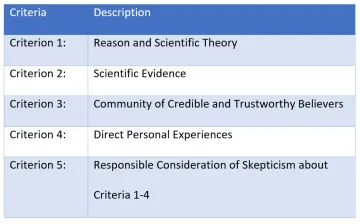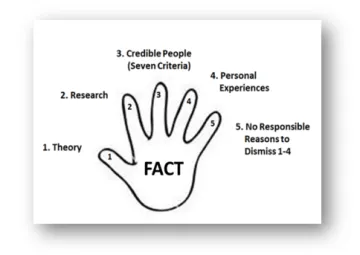
Dr. Carl Sagan, the distinguished astronomer, public educator about science, and avid skeptic, stated that “Extraordinary claims require extraordinary evidence.”
Is it possible to create a rational and practical investigative framework for improving truth seeking and an evidenced-based approach to form beliefs and make decisions in daily life?
“Gary Schwartz has made extraordinary claims through his life and produced extraordinary evidence for them. In Extraordinary Claims Require Extraordinary Evidence he shows how this pioneering endeavor can be elevated from an art into a science…. for the greater benefit of all truth-seeking people and those who are just curious. They will find that the truth is often stranger than fiction and it is vitally important to know and to embrace.”
- Erwin Laszlo, PhD, Author of The Systems View of the World and one hundred other books in systems science and philosophy
We live in an age where accuracy of information is being challenged not only in social media and politics, but in science and education as well. Extraordinary claims are made about people, institutions, processes, and products, in the absence of corresponding evidence. If any claim requires careful and responsible evidence for reaching an accurate conclusion, it is the survival of consciousness hypothesis. Dr. Schwartz has been concerned about methods of truth seeking and truth avoidance his entire academic career, spanning his years at Harvard University, Yale University, and the University of Arizona.
In 2020, Dr. Schwartz co-authored a book with attorney Alan D. Bourey, JD, titled The Case for Truth: Why and How to Find Truth, which reviews and integrates the best methods in science and the law for discovering truth and reaching accurate conclusions. Bourey and Schwartz present a comprehensive, twelve-dimensional, integrative framework for expanding human understanding called the “Dimensions for Expanding Understanding System” (called DEUS).
In his follow-up book titled Extraordinary Claims Require Extraordinary Evidence: The Science and Ethics of Truth Seeking and Truth Abuse, Dr. Schwartz presents examples from his academic career where he has addressed extraordinary claims and sought responsible evidence to evaluate these claims. In this book he presents a simplified “Five Additive Criteria Test” (called FACT) for organizing and structuring improvements in truth seeking and minimization of truth abuse. The five essential criteria are shown below in a table as well as simple heuristic graphic. The five criteria have been applied to the survival of consciousness hypothesis and other controversial areas in science and society.
Table: Five Essential Criteria for FACT

Figure: Five Essential Criteria for FACT

Ongoing research at LACH is applying FACT to the real-world problem of evaluating defamation (i.e., the making of false, malicious claims against people, both living and deceased) and improving public policy regarding the consequences of such truth abuse.

